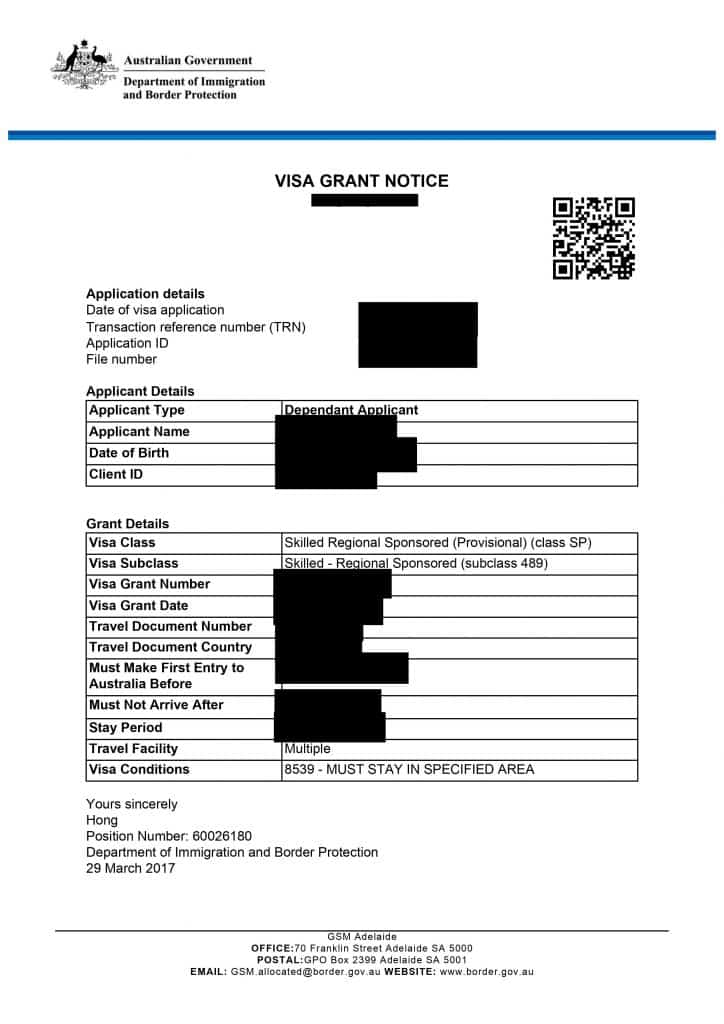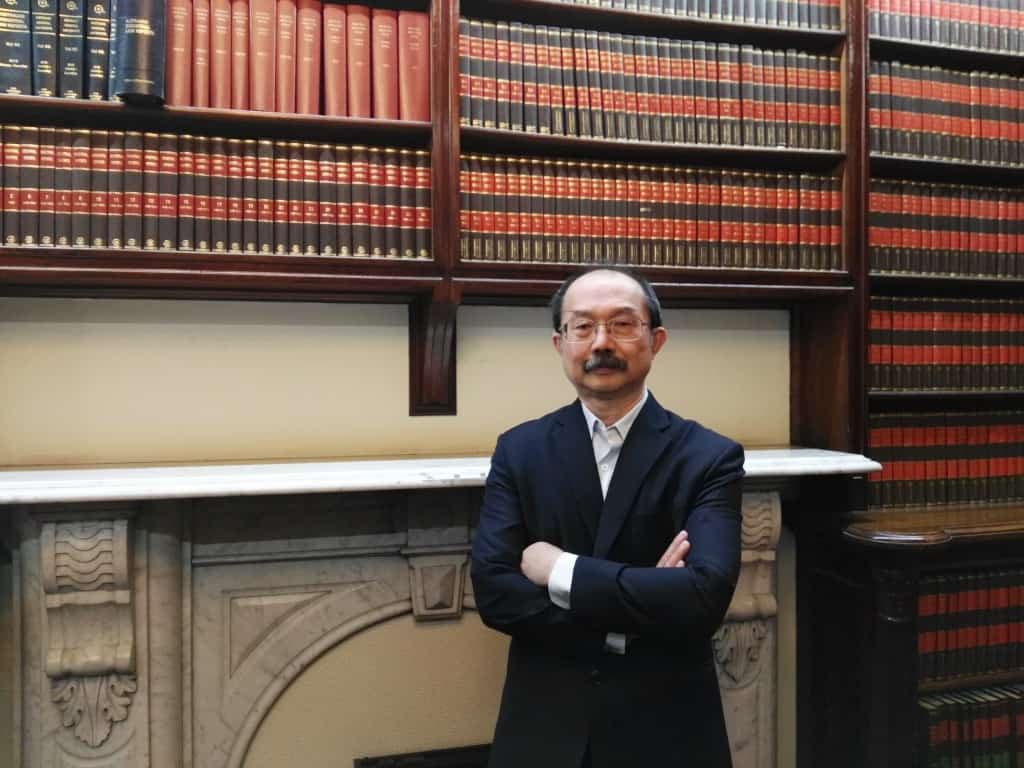
Condition 8539 & condition 8549 – if either of these visa conditions is attached to your visa and you (as a primary or secondary visa applicant) holds a Subclass 489, while you are in Australia, you must live, study and work only in a specified (8539) or designated (8549) area. The “specified” area is a postcode listed in a legislative instrument. “Designated area” is defined in reg. 1.03 and is listed in a legislative instrument (for e.g. IMMI 16/044).
If you and your dependent(s) have been granted a Regional Provisional or Temporary visa (for e.g. Subclass 489) with a PR pathway, it is very likely the Department will impose condition 8539 and/or 8549 on the visa.
Condition 8579 which is imposed on Subclass 491 (click here to learn more) and Subclass 494 (click here to learn more) making it compulsory for the visa holder, while in Australia, must live, work and study only in a part of Australia what was a designated regional area at the time the visa was granted. What this mean is that the designated areas or postcodes are those listed in the legislative instrument that was in force when the provisional points-tested visa was granted (and not necessary the current instrument).
These visa conditions usually apply to points-tested skilled migration visas such as Class UZ Subclass 496 (Designated Area-sponsored), Class UX Subclass 495 (Independent Regional) and Class SP Subclass 489.
Nominated or sponsored regional points-tested visas
If you are nominated by a State or Territory government, you agreed to live in regional Australia or a low population growth metropolitan area or areas (condition 8539).
If you are sponsored by an eligible relative, you agreed to live in a designated area or areas of Australia (condition 8549).
If you and your dependent(s) are applying for the permanent visa after having satisfied the residence requirement, both you and all your dependents must have substantially complied with the conditions (8539 and 8549) to which your current Provisional visa is or was subject.
Time spent overseas
Condition 8539 & condition 8549 do not apply while the visa holder is outside Australia. It is not a breach of the condition if you or your dependent(s) spent time overseas.
When condition 8539 & condition 8549 start?
If you are already in Australia, you will be expected to live, study and work in a specified regional area within 2 to 3 months of being granted the provisional points-tested skilled migration visa.
If you have been granted the provisional points-tested skilled migration visa while you are outside Australia, it is reasonable to expect that you will make arrangements to establish living arrangements in a specified regional area within 1 month of arrival.
Can I spend time outside specified regional area
When you applied for a provisional points-tested skilled migration visa, you sign an undertaking that you and your dependent(s) understand and accept the associated visa condition 8539 & condition 8549.
Under the department’s policy and as long as the visa holder continues to be employed or to live or to study in a specified regional area, you can travel to an area outside the specified regional area for work or recreational purposes, for e.g.:
- for business reasons
- for brief holiday or
- to undertake training for work.
So, it is acceptable for you to stay with someone in Melbourne on 1 weekend a month. You may breach condition 8539 & condition 8549 if you rent or buy a property in Melbourne so you can stay every weekend.
It is also acceptable if your place of work is in a specified regional area but your employer is elsewhere in Australia or overseas.
Study while on condition 8539 & condition 8549
You and/or your dependent(s) may only study in a specified regional area while in Australia.
Breach of condition 8539 & condition 8549
Most provisional general skilled migration visas (for e.g. Subclass 489) are granted for 3 or 4 years and the PR pathway (for e.g. Subclass 887) residence requirement is a total of at least 2 years, this does not mean that you and/or your dependent(s) can live outside the specified regional area for 1 or 2 year. In this example, you may satisfy the 2 years residence requirement but you and/or your dependent(s) will not have substantially complied with your visa condition 8539 & condition 8549.
If you or your dependent(s) have lived for more than 2 years in a specified regional area and live elsewhere in a non-specified regional area for the balance of your visa, you will be considered as not complying with condition 8539 & condition 8549. You will still be considered to have breached the condition even if you have been inadvertent or due to exceptional circumstances, for e.g. your dependent has lived with your in a specified regional area for more than 2 years but later has to move to, for e.g. Melbourne to pursue his education as his preferred course is only available there.
One fails, all fail
When you and your dependent(s) apply for permanent visa, you and each of your dependent must have complied with condition(s) of the earlier provisional visas.
Both the main applicant and each family unit member who has previously held a provisional general skilled migration visa must have substantially complied with the condition of that visa. Condition 8539 & condition 8549 is a “one fails, all fail” requirement.
Australian migration law is complex and difficult to understand, contact our immigration lawyer for a consultation (fee applies) to help you prevent visa cancellation or visa refusal due to breaching condition 8539 & condition 8549 or click here to find other visas.

 041 222 4020 or WeChat: AUDvisa
041 222 4020 or WeChat: AUDvisa
This article is not intended to be or taken as migration legal advice. The author of this article disclaims any liability for any action or omission on the information provided or not provided in this article. You should always consult an immigration lawyer or a registered migration agent to form an informed opinion on your immigration matter.



